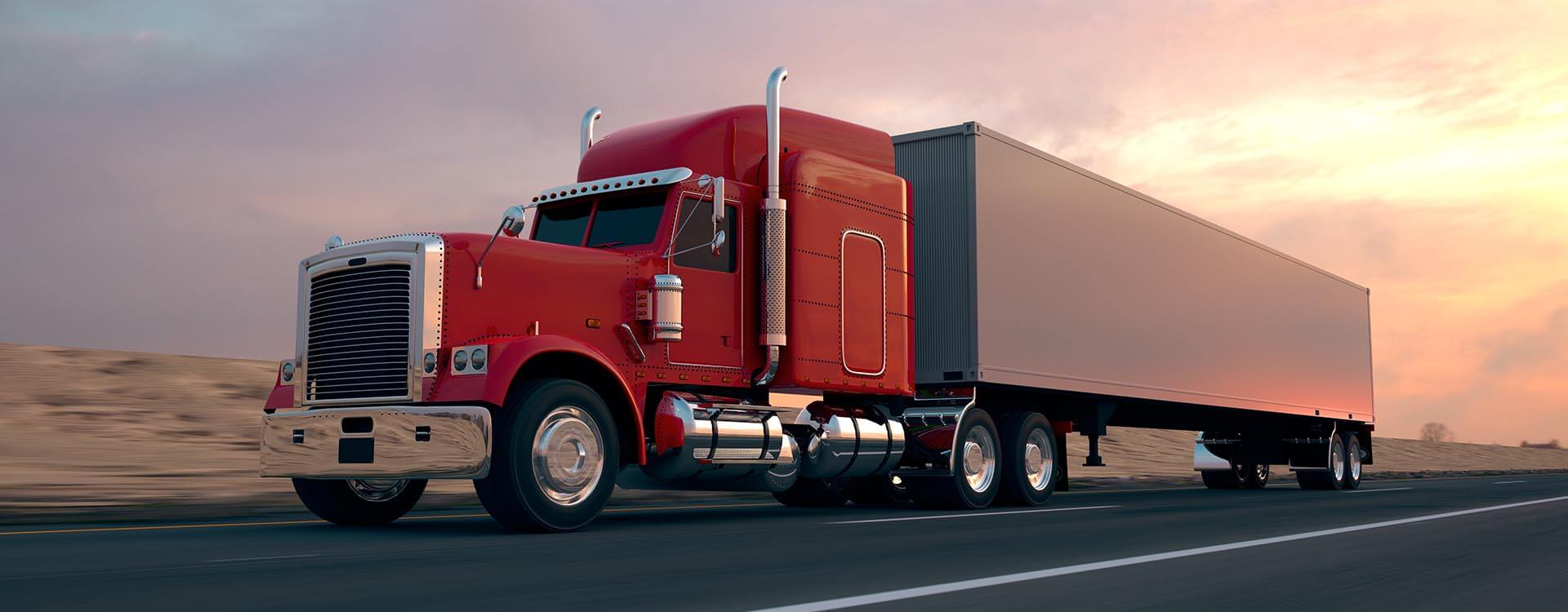The Ultimate Guide to Shopping for Commercial Truck Insurance

Whether your focus is a single truck, or a whole fleet of them, choosing the right coverage for a commercial truck insurance plan is the key to protecting your business. This ultimate guide for commercial truck insurance will give you all the information you need to find coverage that works for you, including tips for the legal minimum required insurance coverage to more in-depth coverage
What Determines the Cost?
Many different factors impact the overall price of the insurance coverage you will pay for, such as:
- Cargo: The type and the value of the cargo that your truck, or your trucking company, hauls will determine the overall price of the coverage. Insurance coverage will be there to cover not just the truck but its contents as well.
- Distance: Most insurance companies will price their coverage based on the distance radius the truck will be driving with its assigned cargo. It focuses on these three, in order from least to most expensive:
- Local – no more than 50 miles
- Intermediate – 51 to 100 miles
- Long-distance – these are trips over 200 miles, such as coast to coast.
- Risks: Each road traveled comes with inherent risks. Should the truck have to drive through high crime areas or parts of the country with unpredictable and bad weather, the price of coverage will be higher as the risk of an accident increases.
- Record: Driving record, that is, can also determine the price of insurance. This price factor is determined by a ratio of the number of accidents and traffic violations related to the number of years you have been driving.
- Vehicle: Last comes information about the truck, such as its age, model, and quality.
How to Get a Quote
Gathering quotes from potential commercial truck insurance companies is the first step to choosing commercial truck insurance coverage that is right for you. As you go through gathering quotes, you will need to make sure you have a couple of pieces of information:
- Insurance Policy Declaration – the declaration page is the first page of your insurance policy, which has the name, location, policy expiration date as well as any other pertinent insurance information. Should you already have insurance coverage, this is a good page to bring along with you to check for comparable coverage.
- Driver’s License and history – You can pick up a printed copy of your driving record from the local DMV, though some companies can also check that information. Bring a copy of your driver’s license and any other driver’s for the company to check your information.
- VIN or Vehicle Identification Number – printed on the truck and its original parts, this number is a unique identifier to the truck you are trying to ensure. A company cannot process insurance without a specific car to attach to the policy.
- Other Information – Other information can include safety information and other pertinent details about the truck as the company representative will have a large amount of questions.
Types of Commercial Truck Insurance
A commercial truck insurance policy is made up of various types of coverage that is designed to meet the needs of the truck you’re using or the company as a whole.
- Delivery Truck Insurance: for any truck used for delivery purposes, insurance is comprised of the following:
- Liability insurance – required by law, this insurance covers others in the event of an at-fault accident.
- Bodily Injury – as a part of the liability coverage umbrella, it covers medical expenses should the truck hurt someone else.
- Property Damage – if your vehicle causes destruction to another, it will cover the repairs’ cost.
- Physical Damage – this is not coverage required by law, but it does cover your vehicle in the event of an accident instead of just the other person.
- Cargo – it’s likely your delivery truck will be holding onto cargo, which this insurance will cover should there be an accident causing damage.
- General Liability – This insurance protects the business should you ever find yourself sued for any reason.
- Box Truck Insurance: insurance for a box truck is similar to that of other vehicles with a few additional options. A box truck looks just like it sounds, usually square or rectangular with a cargo hold in the back.
- Liability insurance – to help cover others in the event of an accident
- Bodily Injury – same as with a delivery truck insurance, it will cover the medical cost of an injured party
- Property Damage – protects the other individual’s property should you be in an accident that causes damage.
- Physical Damage – this would cover damage to the box truck when it’s in an accident.
- Cargo – a box truck is known to carry cargo of all types which can get damaged during an accident. This coverage helps with the replacement cost.
- General Liability – to protect you in the event the business is sued.
- Non-Trucking Liability – if you are a for-hire driver, this insurance will help cover liability type costs during an accident if you are in your truck while not yet dispatched to a job.
- Food Truck Insurance: this type of truck is unique since it usually has a cooler in the back to protect its cargo. The insurance to use for this type of truck would be the same as with a delivery truck, except for two differences:
- Product Liability – covers you and the business should someone find themselves suffering any allergies or food poisoning as a result of the food served.
- Business Interruption – helps recoup any costs if there is a situation where you are no longer able to draw an income from the business, such as a natural disaster.



